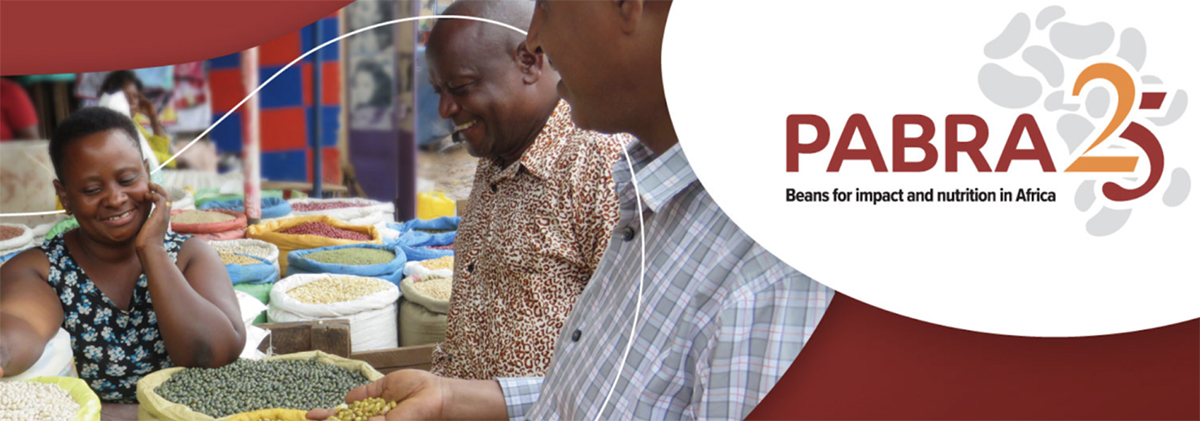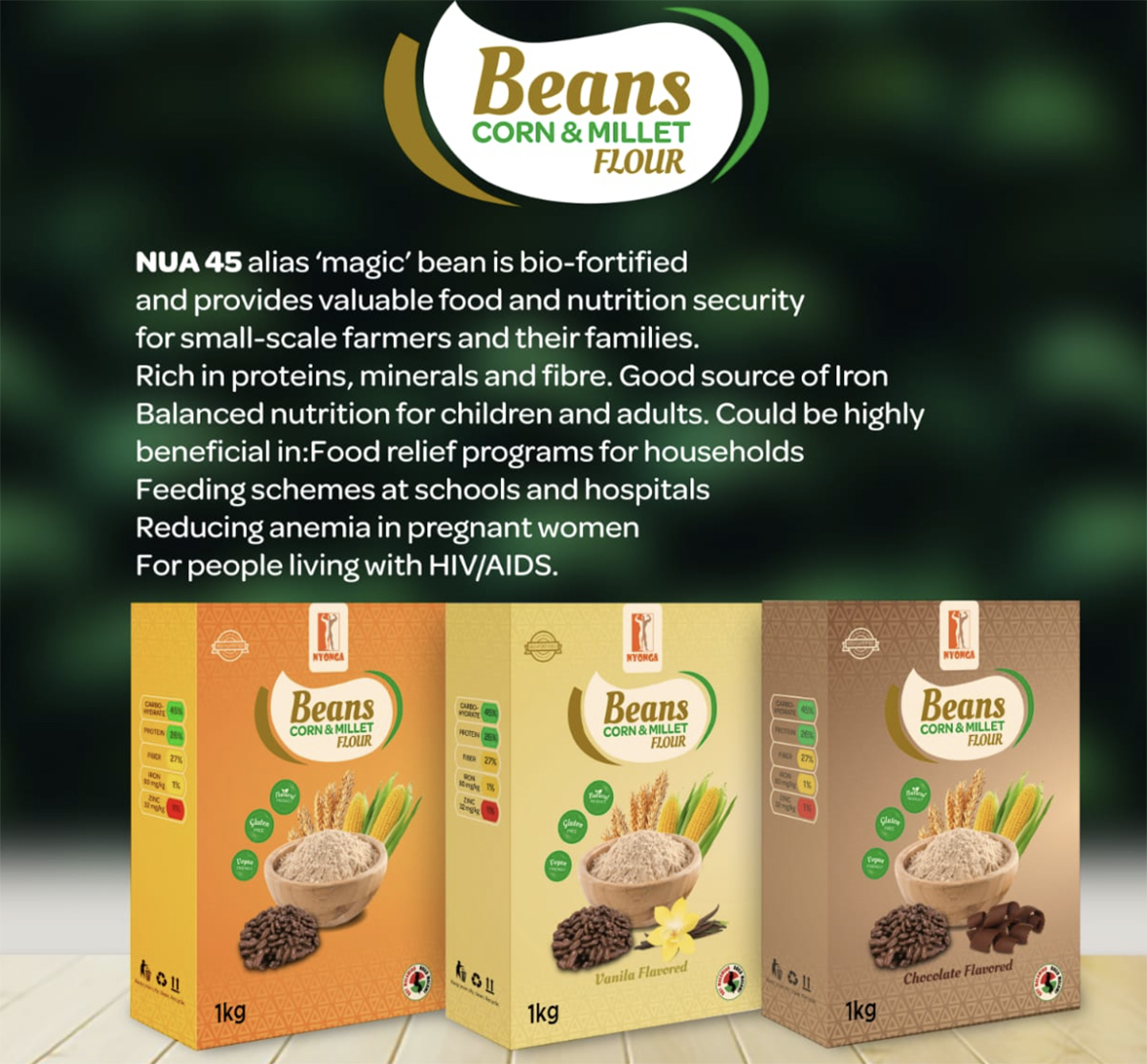April 18, 2023
How PABRA is harnessing the power of climate-smart beans, gender equality, and collaborative governance to spread fairness and prosperity across Africa and increase bean consumption along the way.

Africa is a continent of growth - both in terms of economies and population. Improvements in healthcare and nutrition mean that populations are safer, healthier, and rising. The current population - about 1.37 billion people — represents nearly a fifth of the planet. and is predicted to rise to nearly 2.5 billion by 2050.
Beans are a staple food across the continent, with countries such as Kenya, Rwanda, and Burundi consuming over 30kg per capita every year. To meet increasing consumption and sustainability demands, African nations will need a committed and agile public-sector ally — one that can organize, advocate, and advance the cause of the bean network, from farmers to school feeders.
The Pan-Africa Bean Research Alliance is just such an organization. Working in 31 countries with more than 550 partners, PABRA aims to improve food security, nutrition, and inclusiveness throughout bean value chains across Africa. While securing the interests of smallholder farmers, small and medium enterprises, it develops climate resilient, farmer- and consumer-preferred bean varieties to feed the communities who rely on them.

Jean Claude Rubyogo — Director, PABRA
“PABRA brings together researchers of the Alliance of Biodiversity International and CIAT, research institutions at the national level, and value chain actors interested in commercializing beans, such as farmers or farmer associations," says Jean-Claude Rubyogo, Director of PABRA, "then we come together with NGOs who are looking at beans for poverty alleviation, fighting malnutrition, and increasing gender equality."
Rubyogo has spent the last 30 years of his career working on improving beans and seed systems. Besides leading PABRA, he is also the Global Bean Programme lead working with teams in Latin America.
Beans are not only tools for systemic change, but have also become big business across Africa, with 6.5 million tonnes produced every year. This level of production requires complex supply chain systems and funding – an opportunity that PABRA has tapped into to help farmers find secondary actors to provide financing and agricultural mechanization where necessary.
PABRA’s greatest strength lies in its collaborative nature that comprises a seamless sharing of bean varieties and knowledge between the 31 member countries.
"PABRA beans are ‘beans without borders’. They transverse across countries from Uganda and Kenya, Ethiopia or Rwanda and Burundi – the ecology of the land and food cultural habits are similar to some extent hence the beans shared across these countries do well,” says Rubyogo.
Members of the alliance benefit from the support of complex unions of nations and institutions. For instance, beans can be passed from one country to another in case of political or financial difficulties, or if they are faced with war and reduced production. The sharing applies not only to the beans, but also to agricultural approaches and knowledge.
"We started a value chain in Ethiopia in 2004, nurtured it, tested it, then built it up from $8 million to $160 million in 2020 — from two exporters to 400 exporters today. It helped us master the process of supporting smallholders with commercialization, which we then scaled to other countries to complement their systems."
An important element of PABRA's work is generating new varieties of high-quality beans to introduce to the market. Over the last 25 years, it has released 657 new varieties.
PABRA’s bean breeding is demand-led, working to understand the market’s most pressing needs and meeting them through science, whether that be shorter growing times, higher iron content or greater drought and disease tolerance. Between 2003 in 2020, its efforts have contributed to a roughly doubling of yields across Uganda, Ethiopia and Tanzania.
"In addition to breeding for agricultural adaptation, we look to consumer trade,” says Rubyogo. “To incentivise the farmer, you need to have a highly marketable variety. We look at color, seed, shape, and size, and evaluate what the consumer prefers. This means we have beans that are farmer preferred (high yielding), but also good for traders and consumers – you cannot have a strong seed system unless you have better varieties and better products."

Nyonga bean flour products produced using the high-iron NUA45 ‘magic bean’
Currently, PABRA is working to introduce more than thirty climate-smart varietes of beans into sixteen of its member countries. These specially-bred beans are climate-smart agriculture in action. In Zimbabwe, one village leader who tested a new bean variety, the NUA45 ‘magic’ bean, says that the beans took a shorter time to cook and therefore required less firewood.
PABRA is one of the founding members of Beans is How, a campaign by the SGD2 Advocacy Hub aimed at doubling global bean consumption by 2028. Africa will prove to be an important factor in cultivating greater global consumption but the process will also mean achieving some key practical goals.
"There are two aspects we need to look at,” says Rubyogo. “Firstly, if we want to double consumption, we need to double or triple production. For that, we are thinking of building bean investment cases across countries to intensify their bean productivity and optimize production systems.”
“Secondly, we want to look at what is limiting consumption. Energy is becoming difficult to obtain and expensive. We need to have robust optimization of bean products that are either precooked or in other forms that are convenient and don't require as much energy – both for the poor and the rich."
“If we want to double consumption, we need to double or triple production.”
This is where private sector investment into new bean-based products comes into play. People love convenience, but in countries where energy is at a premium, they need speed. Quick-to-cook, tasty, nutritious meals with clear value will be game-changing.
PABRA encourages its members in the private sector to produce not only pre-cooked high iron beans, but also composite bean flours. It also assists processors in producing and selling bean-based biscuits in Cameroon, noodles in Kenya, and bean soups in Zambia, Malawi, and Uganda.
"These products are in the market and in high demand,” says Robert Fungo, PABRA's Nutritionist. “If you go to the large-scale supermarket chains in Uganda, Malawi, and Zambia, these bean products are stocked. We've seen a surge in bean processors that are interested in producing precooked beans too – wet and dry products – producers who have never had anything to do with beans before. We are really confident that these bean products are on the up."
One trend often seen in some countries among PABRA’s member states is consumers eating more meat when their financial conditions improve. This is not sustainable, says Jean-Claude Rubyogo, and more accessible, faster-cooking beans are the answer.
"You probably need 60 liters of water to produce 1 kg of beans, but you need thousands of liters to produce 1 kg of beef. We need to continue engaging with the consumer in societies and give them a tasty bean product they can cook quickly rather than spending an hour or two in the kitchen. They need products that are easy."
Poor nutrition has been a long-standing challenge in many sub-Saharan African countries, and mothers and their children are often particularly affected. In cooperation with the private sector, the Alliance of Bioversity International and CIAT helped introduce high-iron bean composite flour into meals in more than 60 crèches in Burundi, where its introduction has seen a host of benefits, including a reduction in stunting from 58% to 52% within a year.
Women farmers who work with beans often face difficulties, partly because beans are seen as a ‘female’ crop in the agricultural world – not always worthy of being given the best land. There are also issues with access to credit, extension services, production resources and access to markets. These are all challenges that PABRA helps to address.
Greater commercialization potential for beans has now attracted more men to the traditionally female crop. PABRA works with development partners and national and local governments to promote inclusive bean value chains and address any issues that may jeopardize women’s financial stability and livelihoods.
"The question is: how do you keep beans as a benefit for women?" asks Jean-Claude Rubyogo. "One thing is to explore participatory bean variety selection with both men and women involved. We also have training on gender and equity."
In Rwanda, when high-iron climbing beans were introduced, women were initially overburdened with labor but men who were interested in the high levels of commercialization later got involved and fairly shared responsibilities with the women.
"Women were planting, men were plowing – that is the kind of relationship we hope continues. At PABRA, gender is mainstreamed in our interventions and we have a gender expert working in the alliance to make sure we have the tools we need to ensure equity."
"The question is: how do you keep beans as a benefit for women?"
School feeding programs are a key tool to leverage consumption. PABRA has had a great deal of success in promoting biofortified beans in school meals in Tanzania, which has some of the world’s highest levels of malnutrition. The initiative began with five schools, taking a multi-stakeholder approach in which where local government, farmers, processors, grain traders and suppliers all worked to give schools 10 kg of high-iron beans. From this seed, schools would grow 100 kg of beans, replanting 90 kg then passing the remaining 10 kg to another school. The process continues to revolve and provide for new schools. Today, between 200 and 250 schools in Tanzania are now using bio-fortified beans in their meals and the programme has been expanded across Africa.
It is not hard to see how such schemes could be expanded to raise high-iron bean consumption right across the continent — jumps in school feeding could benefit millions more children, aid the goals of Beans is How, and bolster the health of the bean value chains that are key to a flourishing agricultural economy.

PABRA / gender equality / Africa / Beans / Jean Claude Rubyogo / Global Bean Programmer / Uganda and Kenya / Ethiopia or Rwanda and Burundi / breeding / Tanzania
Disclaimer: The opinions or views expressed in this publication are those of the authors or quoted persons. They do not purport to reflect the opinions or views of the Global Pulse Confederation or its members.